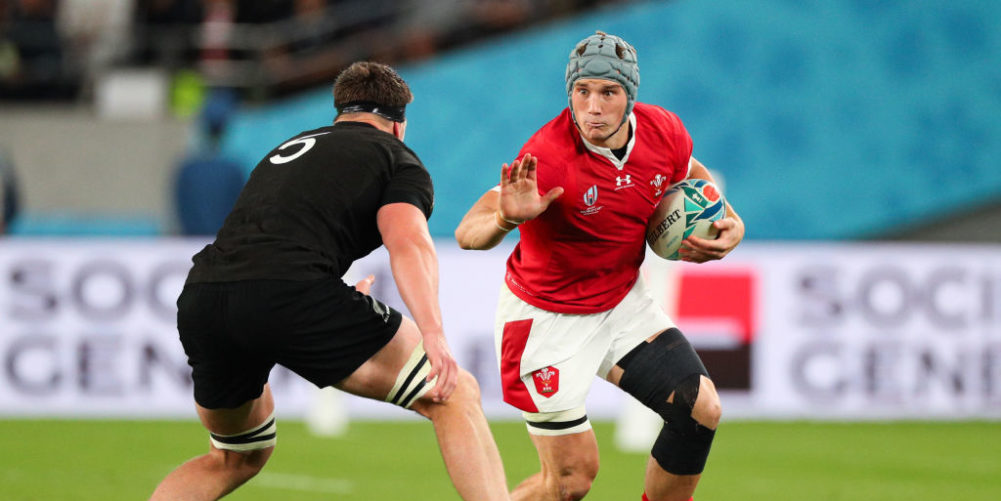Paul Rees talks to the Wales coach ahead of their clash with New Zealand at the Principality Stadium

A rivalry lost was how one New Zealand commentator recently described the relationship between Wales and the All Blacks.
A fixture that started in 1905 at Cardiff Arms Park with a victory to the home side that is still disputed today used to be a meeting of equals, two of the few countries in the world who saw rugby as their national sport and one of their most profitable exports.
When Wales defeated New Zealand in Cardiff in 1953, it was six months after the coronation of Elizabeth II. The two sides meet again at what is now the Principality Stadium on November 5, two months after the death of the Queen who had become the second longest reigning monarch in the world behind Louis XIV.
Will it bookend a run of 32 matches between the sides since then which have all been won by New Zealand? Since the 1978 meeting at the Arms Park, when Andy Haden came up with choreography at a line-out that earned the All Blacks a last-minute penalty to win the match, there have only been two occasions when Wales have kept the losing margin in single figures: 26-25 in 2004, the year before they ended their 27-year wait for a grand slam, and 2009 when Andrew Hore's converted try proved the difference.
Alun Wyn Jones and Leigh Halfpenny started for Wales that day and they were named in last week's 36-strong squad which has been picked for the four autumn internationals which start with New Zealand and end with Australia after tangles with Argentina and Georgia.
Ireland waited 101 years for victory over New Zealand and four followed in quick succession. For Wales, has there been a more opportune time to end the losing run since Geoff Wheel was penalised for barging Frank Oliver in 1978? New Zealand usually arrive in Cardiff at the top of the world rankings, but it is a position they have held for only a few weeks since the 2019 World Cup.
Rugby Championship champions they may be, but this has been one of their most taxing years in the professional era. Their head coach Ian Foster has faced numerous calls to be sacked after losing a home series to Ireland, being well beaten by South Africa and succumbing at home to Argentina. The All Blacks showed a tendency to bounce back from adversity, but there was little of their old dominance or swagger until the final rounds of the Rugby Championship. They will arrive in Wales fourth in the world rankings: they face Japan in Tokyo on Saturday but they are too far behind third-placed South Africa for that result to do anything other than extend their lead over England by a small fraction.
The All Blacks look vulnerable, but a problem for Wales is not only opponents they have not defeated for 69 years but its place in the calendar: over the years, they have tended to start campaigns slowly as players adjust to the step up from regional rugby. They also have an injury list which includes two of their 2021 Test Lions in South Africa, skipper Dan Biggar and fullback Liam Williams.
Wales's head coach Wayne Pi- vac said after naming his squad last week that the form of the four regions was a concern. The four went into this weekend having won six of their United Rugby Championship matches between them: two of the victories came in derbies.
“There is not much between the regions and we can all beat each other on any given day,” said Cardiff 's director of rugby, Dai Young. “The issue is that we are 20 points behind most other teams in this league. It is a concern and we are trying to put it right. We have the same squad and are constantly trying to get better but our rate of improvement has to be bigger than that of the teams above us. When Edinburgh and Ulster sign British and Irish Lions (after Worcester went into administration) it makes it more difficult to close the gap.
“The major challenge for Welsh rugby is to get closer to the teams above us. It is hard for us to compete with them on a regular basis. They are continually looking to move forward and we are trying to hold on to their shirt-tails.”
When Warren Gatland was the head coach between the end of 2007 and 2019, Wales tended to override the mediocre form of the regions. His successor, Pivac, has had mixed results, the 2021 Six Nations title, which was minutes away from being a grand slam before France snatched it away from them in Paris, was sandwiched in between two below average campaigns in 2020 and 2022.
“It comes down to individuals and how hard they want to work,” said Pivac. “Everything is laid on for you in the Wales camp and there are no excuses. To be able to play Test rugby you have to be able to operate at the levels we set in training. The sessions are a lot shorter than they are at club level, but they are a lot more intense.
“It is tough when the players come into camp and they have to be prepared for that; some players do not hit the numbers they need to in training never mind in a game. The debate over the regions has been going on for some time,” added Pivac, who when he was in charge of the Scarlets took them to a league title and a Heineken Champions Cup semi-final.
“There is not as much money in rugby as there was and we need the right structure. It is about being competitive and that is what we would like to see so players come into our camp with confidence.”
As a New Zealander, Pivac knows what to expect on November 5 with New Zealand having built many a bonfire in the past to torch Welsh dreams. It will be his first tussle with the All Blacks as Wales's coach, the one top tier country his predecessor Gatland did not enjoy any success against.
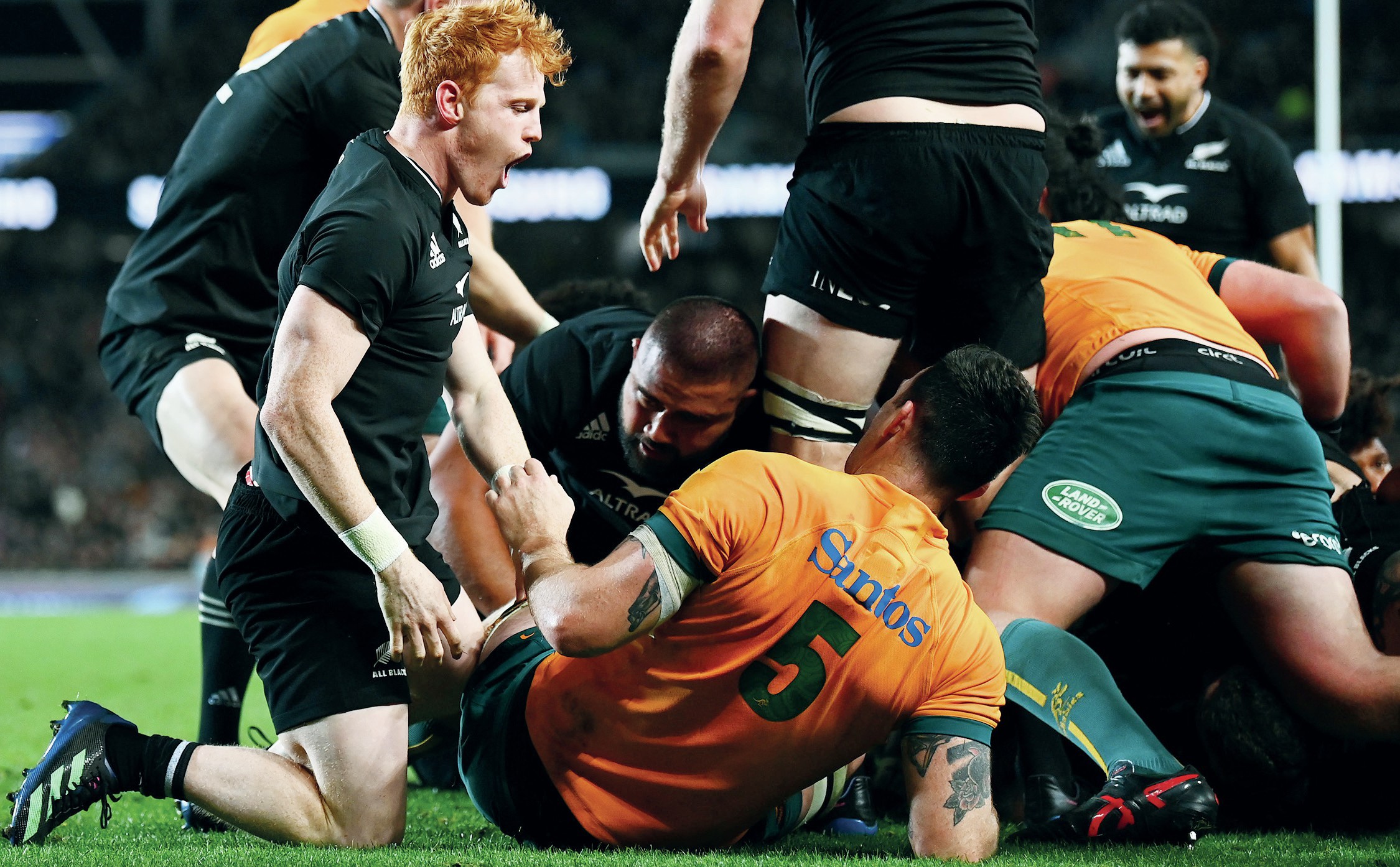
“I know the date of Wales's last victory in the fixture very well,” he said. “I have not missed many of the matches over the years. A Wales win is overdue and it would be fantastic for the country. They have been hurt but they are a side with a lot of quality. We know what is coming. They scored 90 points in their last two games (against Argentina and Australia) and we have looked at them. The pace of the game against Australia was different to what we are playing at the moment. We know they are going to be a dangerous animal and they have settled on a squad since making changes to their back room staff.
“We love playing the All Blacks. I hoped we could do so in 2020, but Covid prevented that. It is a fantastic game: there will be a sell-out crowd I have no doubt and the atmosphere is going to be like it was before the pandemic with the bands and all the excitement.”
Wales's last appearance at the stadium was in March when, for the first time, they lost at home to Italy in the Six Nations to finish fifth in the table for the second time in three years. They earned partial redemption on tour in South Africa in the summer, winning a Test there for the first time and narrowly losing the series.
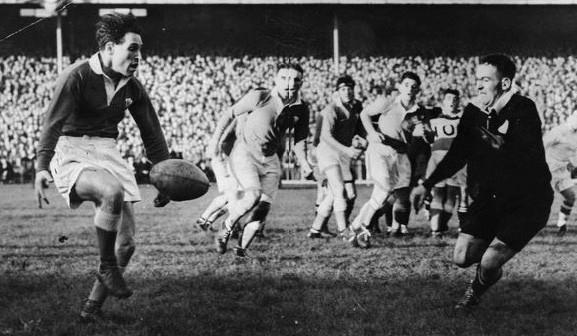
“We had a point to prove in South Africa,” said Pivac. “We trained differently there and it will be more of the same in the next month. Players have to come in ready to go because it is going to be very physical first up. Training is going to be tough: there will be a lot more live stuff which some players do not like. You cannot hide from the physical side of the game. You have to be prepared to go to dark places and work hard for each other. At this level, there are no short cuts. We have to prepare well.”
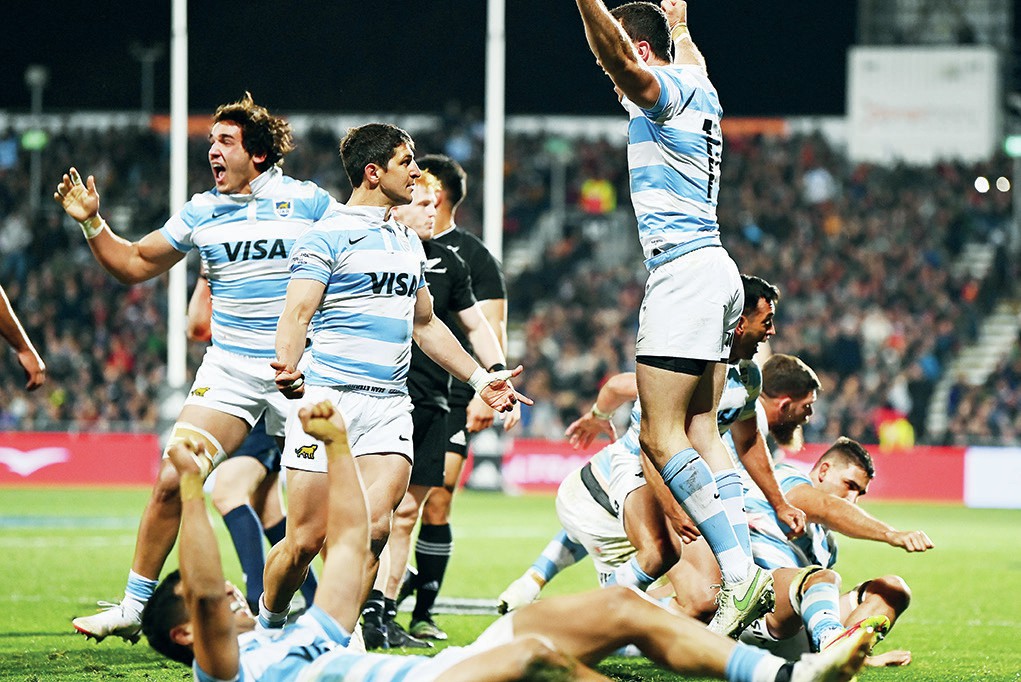
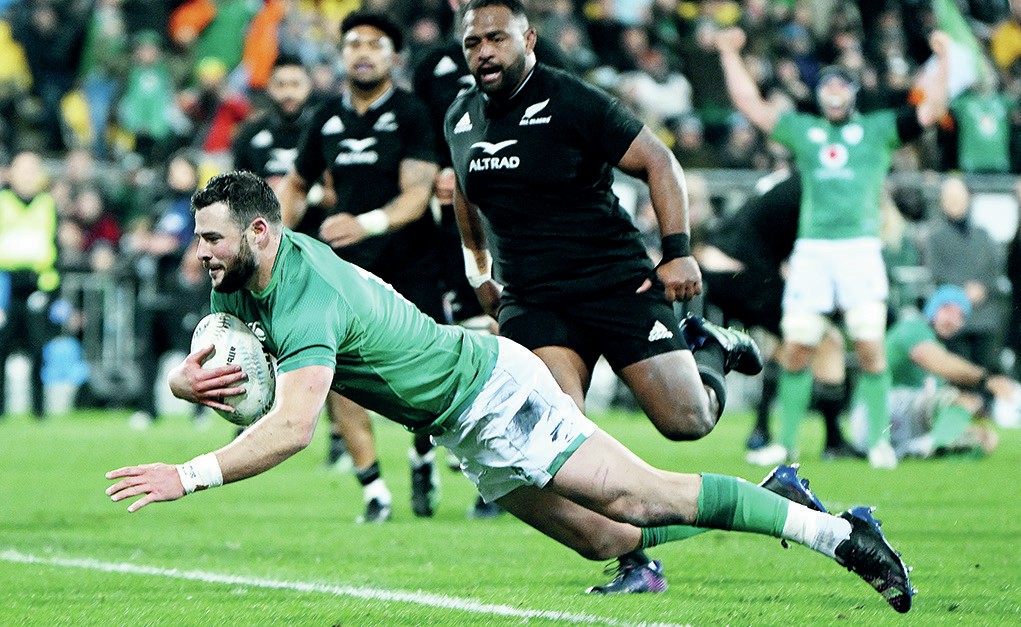
Wales may not have beaten New Zealand since Winston Churchill was prime minister, but club sides have. John Uzzell's drop goal took Newport home 3-0 at Rodney Parade in 1963 and next Sunday marks the 50th anniversary of Llanelli's 9-3 victory over the All Blacks at Stradey Park. It was a time when Welsh club rugby was the envy of the world, a cluster of 18 clubs who anointed them selves with first-class status operating in a relatively narrow band.
There is a photograph in Roger G.K. Penn's updated book Wales and the All Blacks (y Lolfa, £14.99) that stands out. It was taken on a midweek afternoon at the end of November in 1972. Gwent were playing New Zealand at Eugene Cross Park, the home of Ebbw Vale where the county three years before had defeated South Africa.
It was a typical November day, grey and wet, but the uncovered terrace on the one side of the field was a wall of spectators. It was estimated that a crowd of 20,000 watched the match. Last weekend, Cardiff, the Ospreys and the Scarlets all had home matches in the United Rugby Championship: their combined attendances came to less than 20,000.
Club rugby in Wales has withered in the professional era. The regions were created, first five and then four after just a year, because there was not enough money to adequately fund a top division of even nine clubs. Regional rugby was a financial necessity but it has diluted the rivalries that watered a tribal domestic game.
Even when Wales were weak, the club sides were strong, a reverse of how it is now. When New Zealand arrived in the country in 1989, it was a year after they had won two home Tests against Wales by a combined score of 106-12. They were to win the Test at the then National Stadium 34-9, but Cardiff, Swansea, Neath and Llanelli ran them closer, unlike in Ireland where Munster, Leinster, Connacht and Ulster all lost by a greater margin than the national side.
Neath were the leading side in Wales then, the Welsh All Blacks who prided themselves on their fitness and a reputation of fearing no one. The players walked to the Gnoll from the hotel where they had lunch, some 900 yards, mobbed by supporters. The crowd was estimated at 12,000, but probably more packed into the ground and the noise never let up from the moment the teams ran on to the field.
At one point in the second half, New Zealand were leading by one point and hanging on before sealing victory with two tries. The All Blacks said it was their hardest match of the tour: when they had arrived at the Gnoll, they found their dressing room door was locked and needed a few non-playing members of the squad to knock it off its hinges.
Ebbw Vale and Neath can now measure their crowds in three rather than five figures. Touring teams no longer do the rounds, apart from the British and Irish Lions. And so support, as the Gallagher Premiership clubs have found to their cost, is sucked towards national teams.
Wales have long been the country's fifth, and most successful, region, something that will become exacerbated by the current hike in the cost of living which is putting a squeeze on household spending. International matches are now events and whereas in the amateur past Wales tickets rarely went on general sale, snatched by club members, now they do even for Six Nations matches. The audience is no longer a pure rugby one.
It was very different back in December 1905 when Wales and New Zealand met for the first time. The Welsh Rugby Union's historians David Smith and Gareth Williams wrote in Fields of Praise: “This was a complete meeting of peoples. It was, perhaps, the first time that each country saw in the other that utter dedication to the sport which, they had discovered for themselves, was a function of its greatness. The aura of mutual invincibility was a major factor in the making of this epic encounter.”
New Zealand arrived in Cardiff having won all their 27 matches on a tour which had started against Devon three months before. Scotland, Ireland and England had all been defeated, the latter two failing to muster a point, and only Scotland had held them to a single figure winning margin.
It was different in Wales where the All Blacks played five matches, scoring 29 points and conceding 17. They beat Glamorgan by nine points, Newport by three, Cardiff by two and Swansea by just one. All four matches followed the Test at the Arms Park which saw the gates closed one hour before the kick-off with a 47,000 crowd jammed into the ground in the days before tickets.
The morning had been sunny but a mist descended 20 minutes before the start and it lingered for the whole match. After the All Blacks had performed the haka, the Wales players started singing Hen Wlad Fy Nhadau and, for the first time, the crowd picked it up. New Zealand's captain Dave Gallagher said afterwards that he had never been more impressed than when he heard the crowd sing the chorus and one New Zealand writer compared the atmosphere in Cardiff to the one at Crystal Palace two weeks before when the All Blacks had played England.
“The English crowd was quiet, orderly and undemonstrative. The Welsh were there to sing and to cheer their champions to victory. The singing gave a semi-religious solemnity to this memorable contest. It was a wonderful revelation of the serious spirit in which the Welsh take their football.
“The game that followed was an Homeric contest of skill, endurance, pace and sheer brute strength but, long after the incidents of play have grown dim and blurred in one's memory, the impression that will linger will be that vast chorus sounding forth the death-knell of the All Blacks.”

